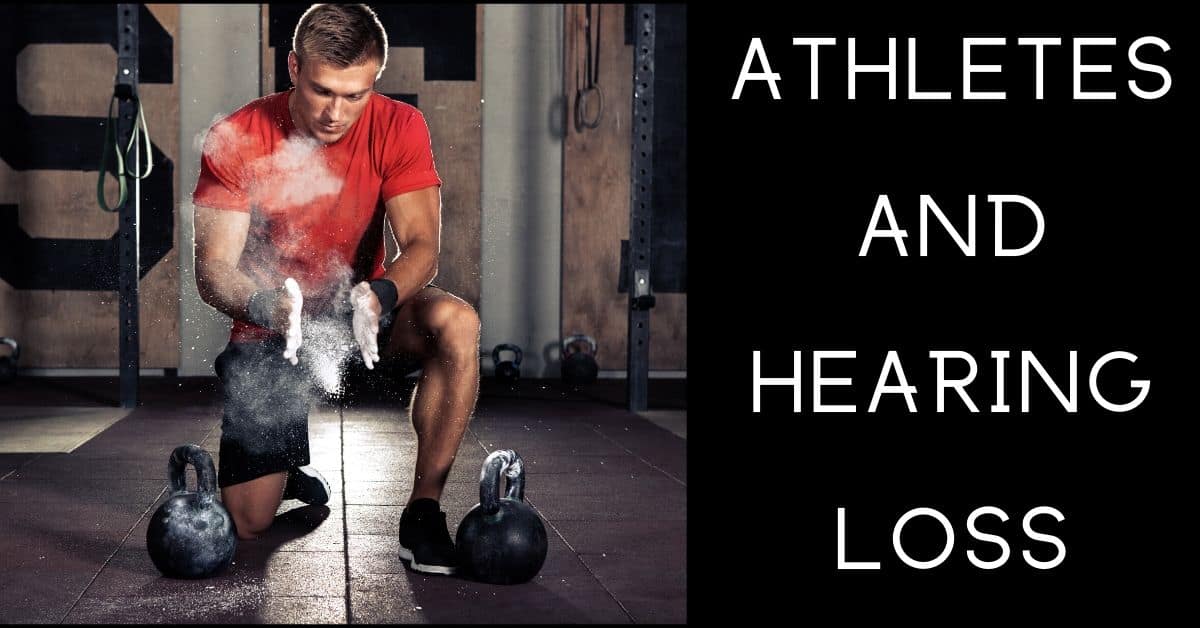If you love sports whether it’s a hobby or a profession, you know how important it is to be able to hear the world around you. The easier you can locate the source of a sound, whether it be a speeding ball, a teammate or an opponent approaching, the faster you can react to play your best game possible. However, years of engaging in active sports can take a toll on your body and your hearing. The deafening sound of fans in a stadium, the shouting of team mates and the higher risk for head trauma all contributes to factors which can excel hearing loss for athletes.
High risk of hearing loss for athletes
A stadium full of cheering fans, loud music and teammates can be detrimental for athletes in the center of it all. Generally sounds measured louder than 85 decibels can create permanent damage to your ears over and extended amount of time. Often in loud sports arena sounds can soar well over this hitting dangerous levels of 120 decibels and louder. According to the Centers for Disease Control and Prevention, around 70% of people do not wear ear protection when around loud sounds. For athletes who rely on their hearing to react faster during a game wearing hearing protection can be a hindrance. Even so it is important, as wearing earplugs for athletes can reduce exposure to noise that would otherwise cause hearing loss.
Head injury and hearing loss
When engaging in sports you put yourself at a higher risk for head trauma and concussions. In fact, the most common causes of concussions are sports injuries, bicycle accidents and car accidents. Impact to the head can result in many problems related to the ear, including hearing loss, dizziness, vertigo, and tinnitus. The most common head injury that causes hearing loss is when the inner and middle ear are damaged due to impact. Games with a high risk of impact like football or lacrosse put players at high risk for sustaining concussions that can affect hearing ability.
Retired Athletes and Hearing Loss
The NFL in connection with a nationwide network of independent hearing healthcare providers called EarQ, explored the connection between retired athletes and hearing loss. Researchers were hoping to explore the causes of hearing loss in retired NFL athletes to explore how hearing loss could be minimized in the future.
Andre Collins, executive director of the Professional Athletes Foundation stated “Our research with EarQ has allowed us to learn more about the prevalence of career-related hearing loss in professional football players,” Collins continued, “It is important that hearing health remains a top priority and we continue to seek out the patterns of risk and demand solutions.”
Safety is a must for athletes
There are so many risks to your head if you play high impact contact sports. Another common injury that athletes who sustain regular impact are at risk for is damage to the outer ear referred to as “cauliflower ear”. This is trauma to the cartilage of the outer ear after being struck with great force. Cauliflower ear can create a block of blood flow and cause visible blood clots leading to temporary or permanent hearing loss. Because of the sudden and violent nature of the injury, head trauma may cause damage to the auditory pathway. The damage may be sustained at any point between the outer ear and the auditory cortex in the brain. Even a mild concussion can cause irreversible damage to the fragile auditory pathways to the brain.
Some irreversible sports injuries to your ears include:
- A ruptured eardrum
- Damage to the small bones of the middle ear
- Damage to the tissues and membranes of the inner ear
- Disruption of blood flow to the cochlear nerve
- Damage to the hair cells of the inner ear
The importance of treating hearing loss
While a ruptured eardrum can sometimes be repaired damage to the fragile inner ear cannot be reversed. In these instances it is important to contact an audiologist to explore your options for treatment. Most of the time hearing aids can help an athlete with hearing loss amplify the sounds they may have lost due to a sports related head injury. If you suspect you have sustained damage to your ears due to a sports related hearing loss, don’t let it go ignored. The sooner you can diagnose your loss the sooner you can get the treatment you need to hear your best.

